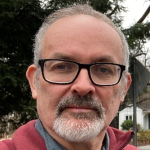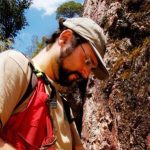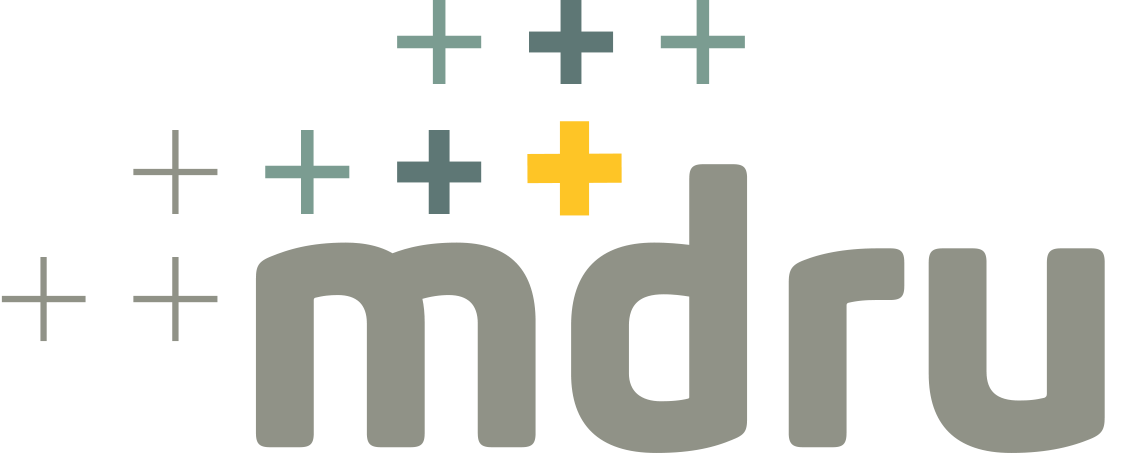SC133: Structural/Geochemical Approaches for Evaluation of Gold/Base Metal Districts
SC133: Structural/Geochemical Approaches for Evaluation of Gold/Base Metal Districts
3-DAY COURSE DETAILS
DAY 1: Principles and Practice
1. Introduction to structural/fluid geology of hydrothermal systems
• Fluid flow driving forces in different mineral systems
• Primary porosity versus fracture/fault/shear and chemical permeability
• Using shears, faults, veins and breccias to try to recognize stress fields – and prediction of mineralization
– Fundamentals of vein-fault-breccia patterns and local stress fields
– Revision of practical methods used to extract kinematic information
– Practical exercise(s) using rocks and maps/sketches
2. Using geochemistry in conjunction with structure
• Structure/grade/geochemistry data fusion
– Logging veins/breccias and their geochemical equivalents
– Alteration/replacement and veining blended with structural observations
• Practical exercise
3. Dealing with structural/hydrothermal complexity
• Extract simple, predictable patterns from apparent complexity
• Structural paragenesis – which structure cuts what and why? Dealing with reactivation
• Structural data and data use in drillcore. Pitfalls and QAQC.
4. Structural/hydrothermal analysis principals for different hydrothermal systems
• Porphyries and other magmatic-hydrothermal vein styles
• Epithermal
• Carlin-, skarn- and other replacement-dominant systems
• Orogenic shear zone and stockwork deposits
• Overprinted syngenetic deposits
DAY 2: Case Histories and Workflows
Basement/cover interactions and reactivation: their key roles in ore deposit and district localization
• Transfer structures at/near surface – what they look like, how to recognize them
• Structural intersections and their significance
• Significance of basement/cover interaction structures in porphyry/epithermal systems
• Significance of basement/cover interaction structures in orogenic systems
DAY 3: Technical Applications and Developments
Advanced techniques in structural/geochemical/hydrothermal analysis
• Technical advances in recent years
• Pitfalls of machine-scanning in real-time workflows, dealing with scale and data overload
• Generating suitable data for machine learning and AI
• Fused Truscan/structural core logging
• Introduction to ioGAS for geochemistry-structure fusion
ABOUT THE PRESENTERS
 Nicholas (Nick) Oliver (PhD, FSEG) is lead consultant and director within the Australian consortium HCOVGlobal, and Honorary Professor of Economic Geology at James Cook University (JCU) and also the University of Queensland Sustainable Minerals Institute in Australia. After positions with CSIRO, Carnegie Institute Geophysical Laboratory, Monash and Curtin universities, he was Professor of Economic Geology at JCU from 1997 to 2010, during which time he headed up several major industry-university-government consortium projects. For the last 14 years he has been a full-time consultant to the minerals sector, focussed on fusion of structural, geochemical and geophysical data, and training. He has given field- and on-line training courses to over 6000 geologists worldwide. His experience with gold and base metal systems is global, from prospects to world class giants, through Fennoscandia, Africa, Australasia and South America.
Nicholas (Nick) Oliver (PhD, FSEG) is lead consultant and director within the Australian consortium HCOVGlobal, and Honorary Professor of Economic Geology at James Cook University (JCU) and also the University of Queensland Sustainable Minerals Institute in Australia. After positions with CSIRO, Carnegie Institute Geophysical Laboratory, Monash and Curtin universities, he was Professor of Economic Geology at JCU from 1997 to 2010, during which time he headed up several major industry-university-government consortium projects. For the last 14 years he has been a full-time consultant to the minerals sector, focussed on fusion of structural, geochemical and geophysical data, and training. He has given field- and on-line training courses to over 6000 geologists worldwide. His experience with gold and base metal systems is global, from prospects to world class giants, through Fennoscandia, Africa, Australasia and South America.
 David Rhys is a consulting geologist based in Vancouver, Canada. He studied at the University of British Columbia, and subsequently has worked for the last 25 years in the mining industry applying geological studies with a structural focus to exploration, development and mining. Mr. Rhys has extensive experience in gold deposits, having worked globally on numerous gold districts of various types for a variety of clients including both major and junior companies. He has conducted direct, field-based geological studies on deposits which collectively contain >650 million ounces of gold and >2 billion ounces of Ag, including the major deposits of the Carlin Trend and region, most producing and historical mines in the Southern Abitibi Greenstone Belt (e.g. Timmins deposits, Canadian Malartic, Kirkland Lake Macassa, Detour Lake, Val d’Or, Hemlo) and Nunavut (e.g. Lupin, Hope Bay, Amaruq), many epithermal deposits (e.g. Pueblo Viejo, Yanacocha, Round Mountain, Waihi, Kupol, Guanajuato, Mulatos, Palmarejo, Brucejack), and in orogenic gold districts in Africa (e.g. Chirano, Damang, Sabodala, Fekola, Otjikoto), Mexico (La Herradura), western North America and Australia (Fosterville, Pine Creek district). In addition, he has broad experience in uranium deposits of the Athabasca Basin, porphyry deposits, carbonate replacement deposits, and VMS deposits. His focus is on advanced projects and active mining operations, aiding in the interpretation of mine site ore controls and applications of mine geology to local and district scale exploration activities. Mr. Rhys also provides training to geological teams to aid in the application of consistent and relevant data collection, and of field based interpretive methods to clients’ technical staff. He is an advisor to several companies.
David Rhys is a consulting geologist based in Vancouver, Canada. He studied at the University of British Columbia, and subsequently has worked for the last 25 years in the mining industry applying geological studies with a structural focus to exploration, development and mining. Mr. Rhys has extensive experience in gold deposits, having worked globally on numerous gold districts of various types for a variety of clients including both major and junior companies. He has conducted direct, field-based geological studies on deposits which collectively contain >650 million ounces of gold and >2 billion ounces of Ag, including the major deposits of the Carlin Trend and region, most producing and historical mines in the Southern Abitibi Greenstone Belt (e.g. Timmins deposits, Canadian Malartic, Kirkland Lake Macassa, Detour Lake, Val d’Or, Hemlo) and Nunavut (e.g. Lupin, Hope Bay, Amaruq), many epithermal deposits (e.g. Pueblo Viejo, Yanacocha, Round Mountain, Waihi, Kupol, Guanajuato, Mulatos, Palmarejo, Brucejack), and in orogenic gold districts in Africa (e.g. Chirano, Damang, Sabodala, Fekola, Otjikoto), Mexico (La Herradura), western North America and Australia (Fosterville, Pine Creek district). In addition, he has broad experience in uranium deposits of the Athabasca Basin, porphyry deposits, carbonate replacement deposits, and VMS deposits. His focus is on advanced projects and active mining operations, aiding in the interpretation of mine site ore controls and applications of mine geology to local and district scale exploration activities. Mr. Rhys also provides training to geological teams to aid in the application of consistent and relevant data collection, and of field based interpretive methods to clients’ technical staff. He is an advisor to several companies.
LOCATION AND PRICING
VENUE/ROOM
UBC Robson Square (In-Person)
800 Robson St • Vancouver, BC
ROOM C400/C420
PRICES
- Early Bird MDRU Member: $1,350 + GST (ENDED)
- Early Bird Non-Member: $1,620 + GST (ENDED)
- MDRU Member: $1,750 + GST
- Non-Member: $1,990 + GST
- Students (Max 10): $400 + GST (STUDENT REGISTRATIONS SOLD OUT)
NOTES
- Lunch and refreshments will be served.
- A participant package with course details will be emailed one week prior to the commencement of the course.
- Certificates of Completion will be emailed.
This course is sold out.
PAYMENT AND REFUND NOTES
To ensure registration for any short course, it is mandatory to make the full payment in advance. Please note that if our decision to conduct a course relies on reaching a minimum class size, refunds cannot be granted. Refunds will only be considered up to 3 weeks before the course commences, subject to a 15% administrative fee. Full refunds will be provided only if the minimum enrolment requirement is not met and the course is canceled.



